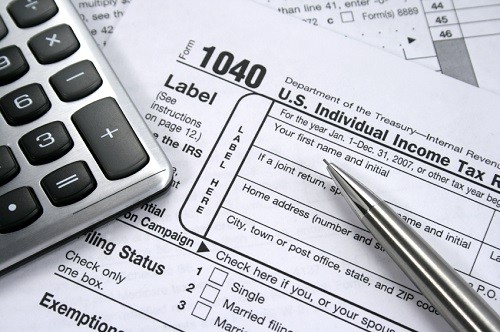5 Year End Tax Planning Strategies to Consider
Post on: 4 Апрель, 2015 No Comment

by Miranda Marquit on November 13, 2009
Source: sxc.hu Photo: YM
The year is drawing to a close, and many of you are probably trying to figure out what you can do to find an extra tax break or two. You probably know that you can give more to charity or try your best to make the maximum contribution to your eligible retirement plan. But there are a few other things you can do. For those in certain situations, there are some specific tax moves that can save you money. Here are 5 end of the year tax moves:
1. Investments
If you are interested in limiting the effects of your investment losses, the tax code can help. Even with the comeback the stock market is trying to make, many people still find that they have capital losses. You get up to $3,000 as a deduction on long term capital losses. But wait! You can also match your long term capital losses with your long term gains on a dollar for dollar basis. If you have $18,000 in losses and $12,000 in gains, you can use the gains to absorb the losses. Then you are down $6,000. Take the $3,000 deduction, and your net loss carry-forward is $3,000 instead of $18,000.
You can also avoid limitations of the wash rule when you sell your winning stocks, since the wash rule only applies to losers. You may not be able to purchase losers for 30 days after selling, but you can turn around and repurchase winners right after selling them.
2. New Car Purchases
Did you buy a new car this year? Have you been planning to buy a new car? If you buy a new car by the end of the year, you can deduct excise, taxes and other fees, up to $49,500 of the purchase price of the car. There are phase outs for this deduction beginning at $125,000 for single taxpayers and $250,000 for married taxpayers. Unfortunately, the car credit is only valid for cars whose deals closed sometime between February 17, 2009 and December 31, 2009. If youre still working on a deal on January 1, 2010, too bad. And if you closed the deal on February 16, 2009, youre out of luck. And the car has to be new, not used.
Be careful when using this tax credit. A used car may actually be a better deal, even if you dont get the tax credit. If you arent absolutely set on a new car, run the numbers before buying for the sake of the tax credit.
3. Medical Expenses
If you spend more than 7.5% of your adjusted gross income on medical expenses, you can get a tax deduction doe un-reimbursed medical experiences. After tax dollars spent on health insurance premiums (including Medicare Part B and Part D premiums) count. Your co-pays count as well. You cant count over the counter medications, though.
It is also worth noting that if you are self-employed and you purchase individual insurance or a group plan through your business (including a sole proprietorship), you can get a tax break. So, keep track of your medical expenses and see what you can do in the way of reducing your tax bill.
4. American Opportunity Credit
This is a tax credit aimed at students. If you have a modified adjusted gross income of less than $80,000 as a single taxpayer, or less than $160,000 for couples, you can take this tax credit for up to $2,500 for qualified expenses (up to $4,000) related to education. This can include expenses for books, tuition and school projects. We plan to use this credit for my husbands Ph.D. project. If you pay money in 2009 for spring semester 2010, you can take the credit this year.
5. Unemployment Benefits
If found yourself out of work this year, and collecting unemployment benefits, you might be able to take advantage of an exemption this year. While unemployment benefits are normally taxed as regular income, this year the economic stimulus package allows for an exemption of $2,400 for each individual. So remember this if you have been collecting unemployment. You can also choose to have 10% of your benefits withheld so that you dont have to try to come up with what you owe all at once.
You can visit the IRS website to find more information about available tax credits and tax breaks for extenuating circumstances. You can also consult your tax professional to get an idea of what you might be eligible for, and to learn what documentation you might need.














